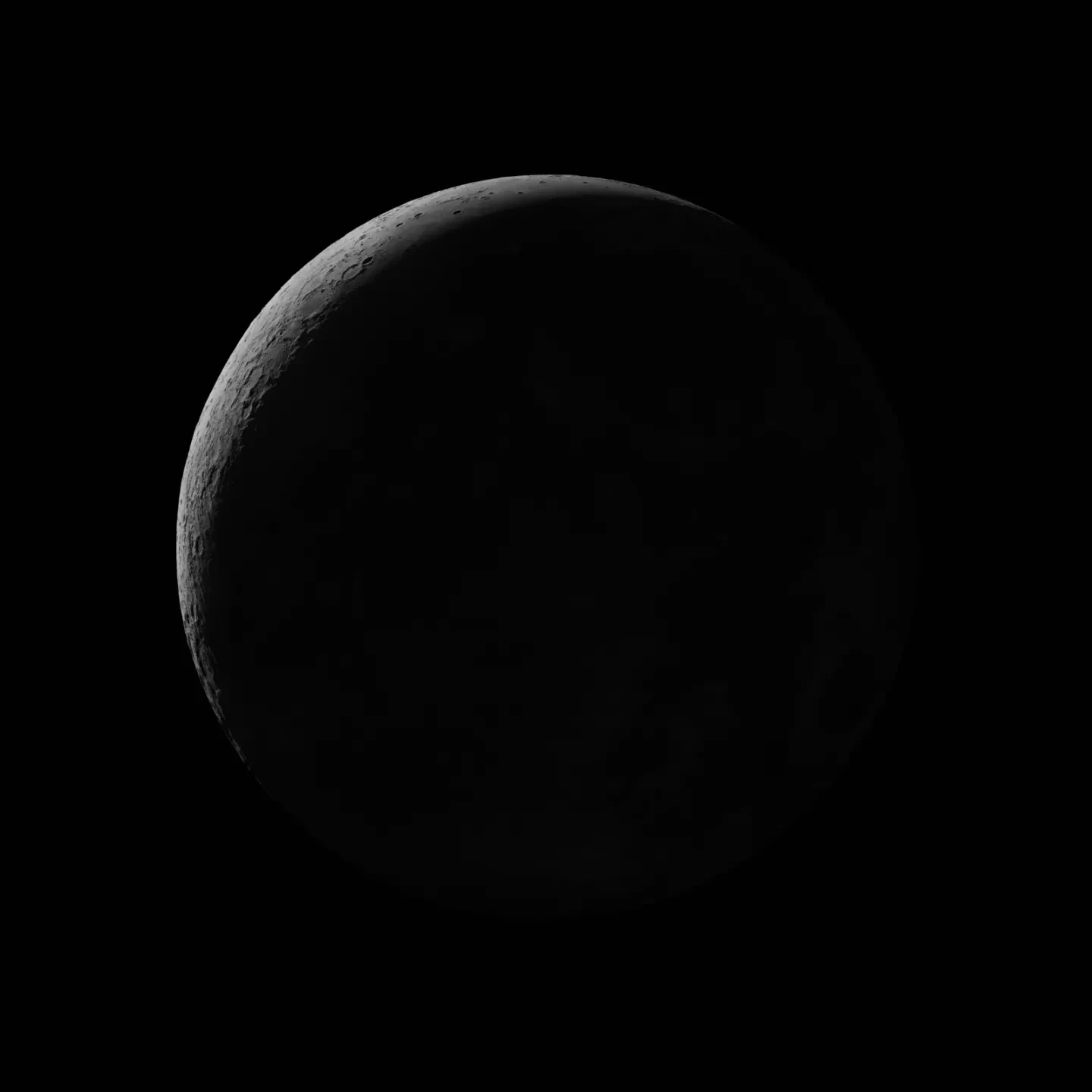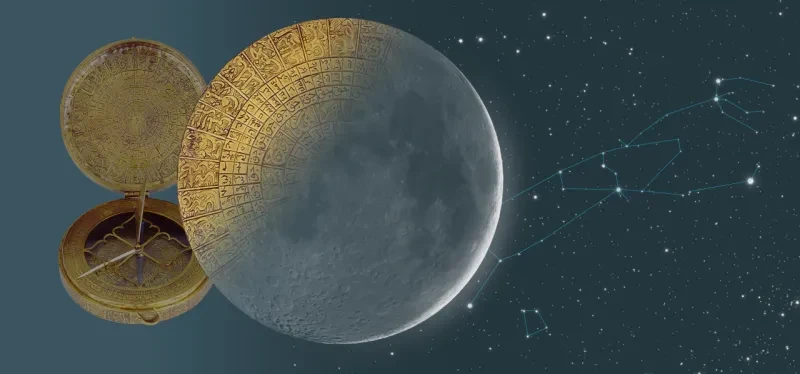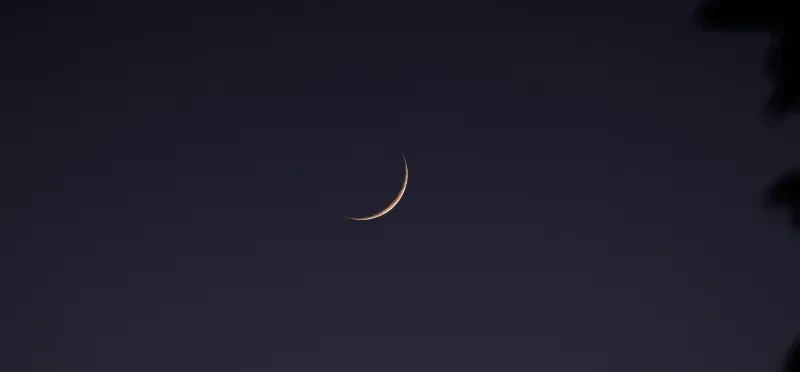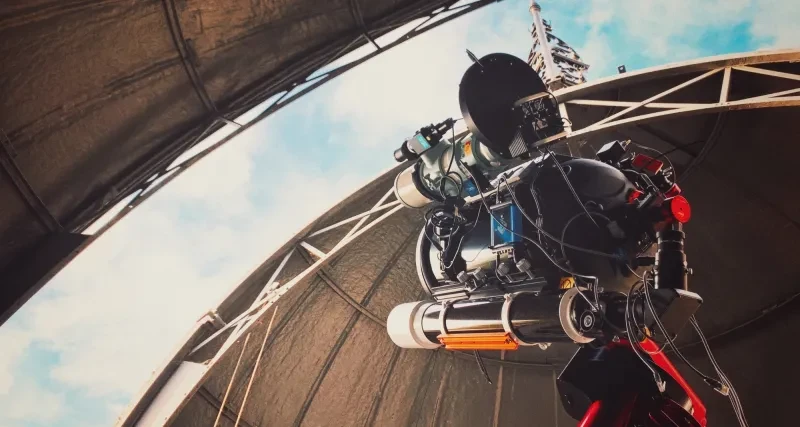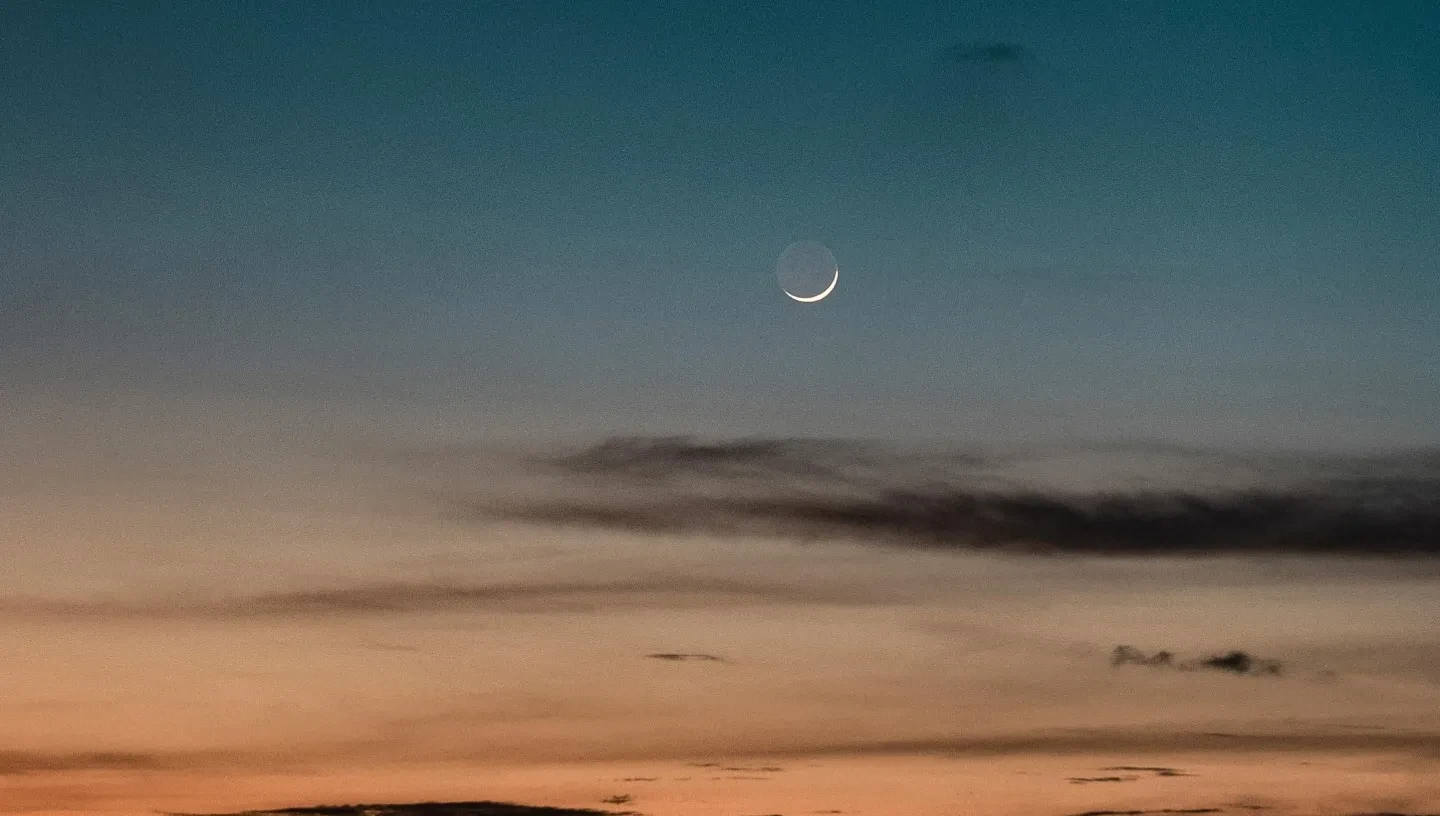
Essential information
| Type | Events and festivals |
|---|---|
| Location |
Online
|
| Date and times | Tuesday 9 April 2024 | 8pm - 8.45pm |
| Prices | Free |
Watch back our live stream where we attempted to sight the new crescent Moon, which signalled the end of Ramadan and the start of Eid al-Fitr in the UK.
Director of the New Crescent Society Imad Ahmed and Royal Observatory astronomer Jake Foster hosted the broadcast. They were joined virtually by New Crescent Society members from across the country, who dialled in to report their own sightings of the Moon.
During the broadcast, Imad and Jake also discussed the links between astronomy and Islam, the Islamic calendar, and tips for sighting the new crescent Moon yourself.
Why were we looking for the new crescent Moon?
The Islamic calendar is a 'lunar visibility' calendar, with each month beginning with the sighting of the new crescent Moon.
A new crescent Moon is the first time the Moon can be seen following a new Moon, which is when the moon is in its invisible phase. When it's at this phase, the Moon is only visible as a very slim curve in the sky, with just a sliver of its near side lit up by the Sun.
Although the Moon takes 29.5 days to go through a full cycle, it isn't possible for a month to have half a day. An Islamic month therefore can either consist of 29 or 30 days, depending on when the new crescent Moon is first visible.
"On the 29th of each Islamic calendar month, Muslims go out after sunset looking for the Moon," explains Imad Ahmed.
"If you can see the crescent Moon on the 29th, that month has 29 days. If you cannot, it means that month has 30 days. That’s why, for example, in some years Ramadan has 29 days and in other years it has 30."
Why do the dates of Eid vary around the world?
The visibility of the new crescent Moon is different around the world, like sunset and sunrise times. This means that not everyone will be able to see it at the same time or even on the same day. This variation across the world can lead to some countries marking religious holidays on different dates.
“One of the issues faced by Muslims in the UK is that we tend to differ amongst ourselves on which dates we celebrate Ramadan and Eid,” explains Imad.
"This is because some Muslim communities in the UK follow the Islamic calendar of other countries. When Muslims in the UK follow the calendars of different countries around the world, it’s natural we will have some differences.
Different countries might see the Moon on different dates, and different countries might have alternative methods of determining the Islamic calendar, which might not correspond to the visibility of the Moon."
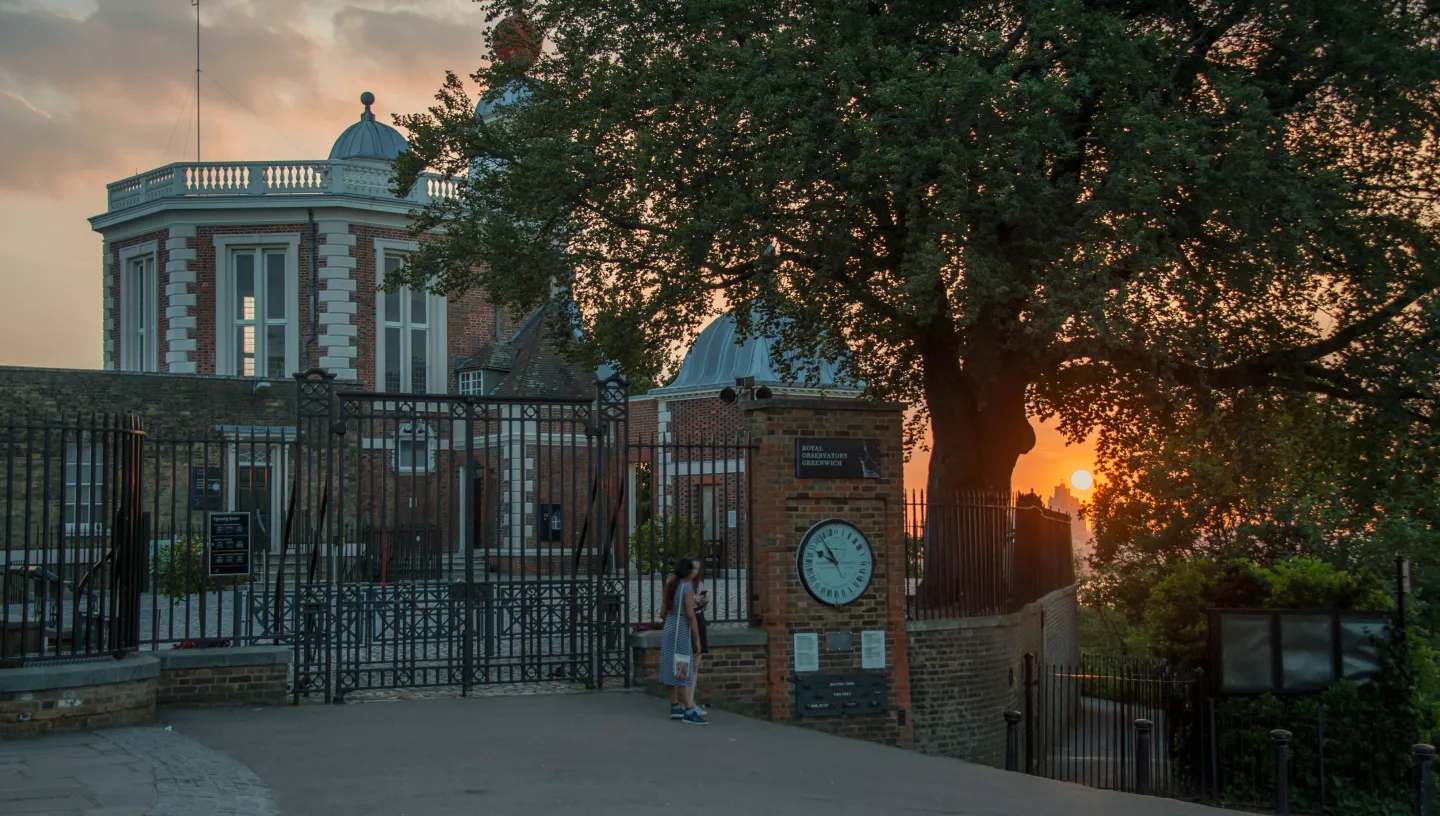
Visit the Royal Observatory
Header image by Ludvig Hedenborg on Pexels
